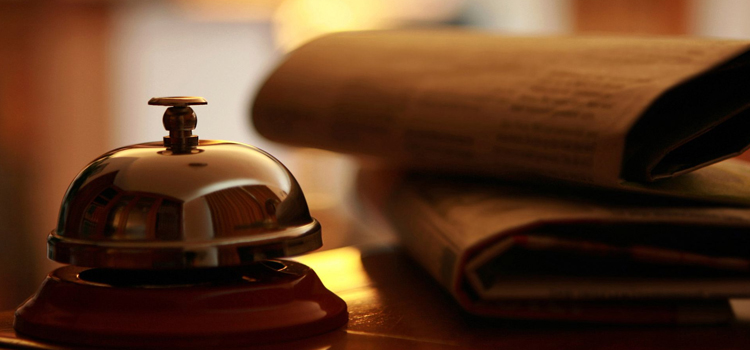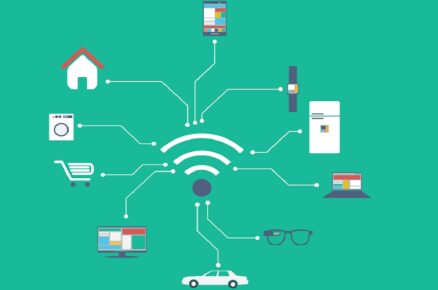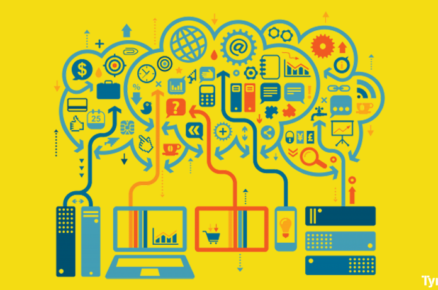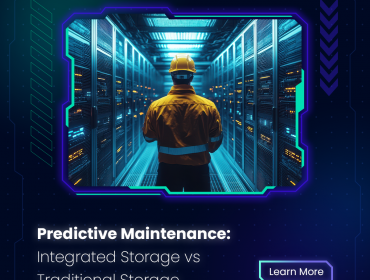Having immense potential, the hospitality sector is growing at a rapid pace both at the national and global level. As this sector expands in diverse directions, there is a growing adaption of technology and resources across this sector. Built at a regional, national and local level, there are a number of sectors that comprise of the hospitality sectors; hotels and restaurants are a main part of this sector and contribute to a great source of their profit as well.
Tourism and hospitality are often considered the same and often overlap each other. However these are two distinct industries, though they are related to each other. Tourism is defined as people who go outside their usual environment generally for a period of less than one year. These people generally travel for either business or pleasure. On the other hand, hospitality is defined as the sector that provides accommodations, venues, meals and other facilities to these people who live outside the comfort of their homes. This means that tourism is not a sector of the hospitality industry but just a source through which tourists fulfill their needs and expectations. Some of the sectors that are a part of the hospitality industry includes licensed clubs, food shops, catering, exhibition and fair organizer activities and other food services.
Hospitality is therefore a focal point in many countries around the world, but it is of particular importance in countries where tourism is a major export industry. This means that when people travel across borders, the hospitality industry flourishes. That is why they are main source of foreign currency exchange and employ a sizeable population as well. By bringing together different cultures in a global scenario, the hospitality sector can help countries increase their revenue and foreign exchange in a considerable manner.
Hotels and restaurants are an integral part of the hospitality sector and are responsible for providing a wide range of services to their customers and clients. But with growing numbers of hotels and restaurants across all categories it becomes difficult to stand out in the crowd. That is why it is important to make use of all the opportunities that come across because standing out in the hospitality sector requires constant hard work and effort. One of the way in which the hospitality sector can get ahead of their competitors is through offering impeccable customer care and efficient operations on one hand and improving technology on the other hand. With so many technological advancements taking place in the hospitality sector, small and mid level hotels must take this opportunity to improve their offerings in a strategic and comprehensive manners. Here are some technological trends that the hospitality sector must adapt to in these changing times:
1.The importance of social media marketing and its effects on customer care:
Marketing professionals of a hotel are trained in such a manner that they can attract maximum number of customers and thereby help to increase the profits in a substantial manner. This means that hotels must learn new and innovative ways in which they can reach their target audience. Today the digital media has that power to engage and connect with audience across national and international locations. One of the fastest and most powerful tool of the digital media is social media. According to a recent survey called Worldwide Social Network Users in 2013, more than 20 per cent of the world’s population is using some form of social media or the other on a regular basis. This number is set to increase in the coming years and engagement on social media is one the most powerful drivers in the coming years.
This means that any hospitality business which wants to stay ahead in the game will have to use digital mediums to connect with their customers in an enhanced manner. Instead of using marketing campaigns that are being used for decades, hospitality industry must use the internet to provide valuable information about their services and products to their target audience. Being active on social media can sometimes backfire as customers can use this medium to complain about their services. So hospitality sector must be ready to answer the questions of the customers as well in a prompt and sustainable manner. By being accountable to their services, hotels and restaurants can send a new and higher trend in customer expectations and desires.
2.Create systems that are intelligently integrated into the management system of hotels:
Hotels and restaurants are completely based on customer relationships. And this means that these sectors will have had some kind of customer relationship management systems for years. However it is important that these systems are updated at regular intervals and integrate with the existing systems as well. Integrated managements systems that are high powered and technologically advanced are one of the main ways in which hotels can provide customers with improved and enhanced services. For example, customers when they book hotel stay they can be given the option of personalising their stay through various options like choice of welcome drink, temperature in the room and television facilities in the room. Once the customer has entered these data in the database of the hotel, hotels can create personalized experiences for the customers, making their stay memorable and unforgettable in the true sense. This is an important manner in which hotels can connect with their customers, because personalized experiences are something that helps companies to retain and expand their customer base.
3.Adapt mobile devices so that it can generate better accessibility:
Today desktops are gaining less popularity because mobile devices are capable of performing all if not more functions than a desktop computer. Even brands are looking at mobile devices, because the help them to connect with customers, clients and partners in an effective manner. Tablets and mobile phones are today the mediums through which brands can take their connection to the next level. Many hospitality related brands are now finding that smartphones fit their strategic vision, operational methods and budgets better than traditional desktops and computers. For instance, concierge professionals can effectively engage and connect with their guests from any place on the property and take care of their needs in real time when they have access to fast smartphone devices. In addition, smartphones are more often cost effective in comparison with the purchase and maintenance of desktop computers.
How can data analytics help hotels to expand their reach in an effective yet strategic manner?
With growing reach, the hospitality sector is today catering to nearly millions of travelers, almost very single day. Each of these customers have their own set of expectations and desires, making it pretty difficult for hotels to meet their expectations in a sustained manner. At the same time it is important to understand that meeting these expectations are important for retaining the customer base of the hotel in an effective fashion. Data analytics can help brands across the hospitality sector to meet their goals and aspirations in a systematic manner. And although many marketing professionals will not admit to this fact; not all customers are equal in the eyes of the hotel owners. While some will check in and out of the hotel without much of problem and use minimum of their services, others will spend thousands of dollars on fine dining, beauty treatments and other activities.
The second category of customers are therefore a bigger investment for the hotel brands as they provide more value to them. Identifying these customers are extremely important for hotel brands and restaurant but it becomes difficult for hotels to track these customers through a single visit. Take for example two different customers. While one may come to the hotel and spend his entire earnings on a lifetime holiday idea, on the other hand there might be another customer who spends very little on extra services, but might be a person who returns on a regular interval to the hotel and therefore have a higher long term value. Big data analytics can help hotels to make this distinction in a effective manner.
Another area where analytics can help brands is through yield management. This is the process by which hotels can understand the optimum value of a room by taking into account various factors like peak demand season, weather and local events and number of guests that check in during a particular period. Big dat analytics can help hotels in all these areas and even though their adoption is less in comparison to retail and manufacturing sector, this can soon change in the coming times as big hotels and restaurants are seeing the advantage of big data analytics investment. A great example of this was depicted in the year 2013/14 when US economy hotel chain Red Roof Inn took advantage of the record setting winter which thereby resulted in flight cancellations.
This meant that as a number of passengers were stranded on a daily basis, the hotel made use of analytics to identify openly available public database system on weather conditions and flight cancellations so that they could target this section of their customers by offering them hotel and room services. As a number of people would be on mobile phones to search for hotels, this chain of hotels used mobile marketing campaigns to increase their business and profit margins. Another example of using big data analytics has been done by a Denihan Hospitality which has a number of boutique hotels across America. By integrating transactional and customer data across its chains and further combining it with unstructured data that is reviews and customer feedbacks, the company created effective dashboards to understand consumer expectations and desires in an effective fashion. This allowed the hotel brand to take more data driven decisions that would cater to all types of customers from business to leisure travellers.
Understanding the needs of the customers and fulfilling them in an effective fashion is one way in which the hotel brand tried to capture and integrate their goals with customer expectations. Further, the hotel brand also placed the findings of these analytic reports in the hands of their staff who could then easily anticipate the consumer needs through just a click on their phone. Housekeeping staff could receive real time updates about the needs of the customers and fulfil them without any issues and problems. As mentioned above customer relationships are an integral part of the success of any hotels and brands must focus on them to ensure better returns and profits. Big analytics by providing hotels with direct and important data can help companies to achieve that goal in a successful manner.
As is the case with other industries, hotel brands and restaurants have to use their analytical data to create marketing campaigns that are innovative, inventive and above all personal. This is because personalised marketing is the only way in which hotel companies can reach their audience in a manner that connects and engages with them. Creating emails or targeted social media plans are crucial tools that can help hotel brands make use of the information and target them to the right audience. This involves analysing information of customers that visit the hotel, gather customer feedback and use the loyalty programs of their party to effectively connect with the target audience through plans that perfectly fit the needs of the consumers. These plans can be anything from a free breakfast or dinner to a ticket for an entertainment programs. These strategies can effectively help to increase the bookings and engagements of the customers across all levels.
The future of big data analytics in the hospitality sector
Big data analytics still have a long way to go before they become an integral part of the hospitality sector. That being said, the volume of data available to this sector is almost limitless and that is why there is immense potential and opportunity available here, something that is not present in other sectors. In the hotel industry, customers leave a data trail from the moment they check into a hotel and these can easily be used and converted into insights that can help a hotel brand understand and empower their customer base in the true sense.
In conclusion, big data analytics is changing the way business and brands perform their functions across all sectors and economies. Very soon they will become an important aspect of the functioning of the hospitality sector because they provide hotel brands with limitless opportunities to grow their customer base not just on the local but national level as well. This rings true for almost every brand within the hospitality sector from the big established chains to the small hotels and restaurants that are present in every nook and corner.












